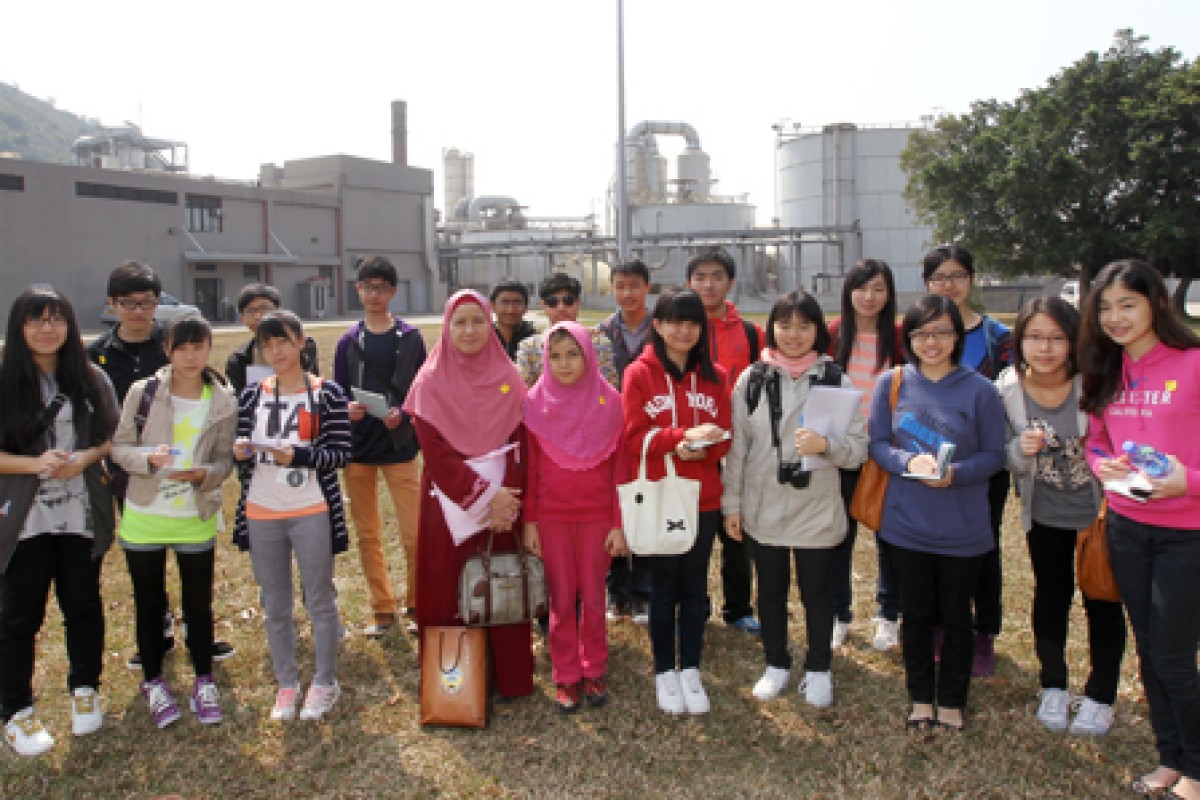 Students visit a landfill.
Students visit a landfill.More than 3,500 tonnes of food is thrown away in Hong Kong every day. One third of that is from shops, restaurants and other businesses; the rest is household waste. Most of it ends up in overburdened landfills.
Something needs to be done. Step One: a change in attitude. We need to learn to waste less. We can do that by keeping a closer eye on our fridges to make sure we don't store too much food in case it gets spoiled. We can also order less in restaurants and try to reuse leftover food.
On February 18, Young Post launched its Waste Not, Want Not campaign to raise awareness of the problem of food waste in Hong Kong.
Working with green groups, companies and experts, we arranged a series of workshops focusing on many sides of the issue. At the Feeding Hong Kong workshop, students went on a "bread run". They collected leftover food from bakeries around town before they sorted and delivered edible items to the poor.
Students after their bread run.
At another workshop, City University professors explained how food waste could be turned into a range of items from plastic bags to new food products. At the Hyatt Regency Shatin, students had the chance to create dishes from leftover ingredients. And a tour of the South-East New Territories landfill allowed them to see firsthand the amount of waste we create every day.
Students learn from a City University expert how to turn bakery waste into energy.
And there was still more to learn.
At the Kowloon Bay Waste Recycling Centre, students discovered how leftover food scraps could become compost for plants. At the Fruitful Organic Farm, they tried their hands at planting new organic crops in the sweltering heat, gaining newfound respect for farmers.
Students at the Fruitful Organic Farm in Yuen Long.
In all, students from 19 schools took part in the workshops, taking what they learned back to classmates.
Young Post has invited schools to set up their own projects to promote food waste awareness.
We have also asked readers to pledge to reduce food waste and urge friends and relatives to do the same.
Participants make bread pudding from leftovers with chefs at Hyatt Regency Shatin.
This issue affects us all, so if you haven't done so yet, take the anti-food-waste pledge and add your name to the list of students who have so far officially joined Team YP in promising to waste less food.
Our campaign is just a small step on the road to solving the problem of food waste in Hong Kong. But we hope it has inspired readers across the city to think about the issue and to realise that they, too, can make a difference.
See some of the projects that students and schools came up to help reduce food waste HERE.
Read about the workshops:
- Visit to South East New Territories (SENT) Landfill
- Planting crops at Fruitful Organic Farm
- Bread Run with Feeding Hong Kong to collect leftover pastries
- Visit to Hong Kong Science Park to see technology that put leftover food to new uses
- Visit to the Kowloon Bay Waste Recycling Centre to see how they turn food waste into compost
- Learn how the chefs at the Hyatt Regency Shatin use leftovers to create new dishes
- See what some schools are already doing with their food waste
